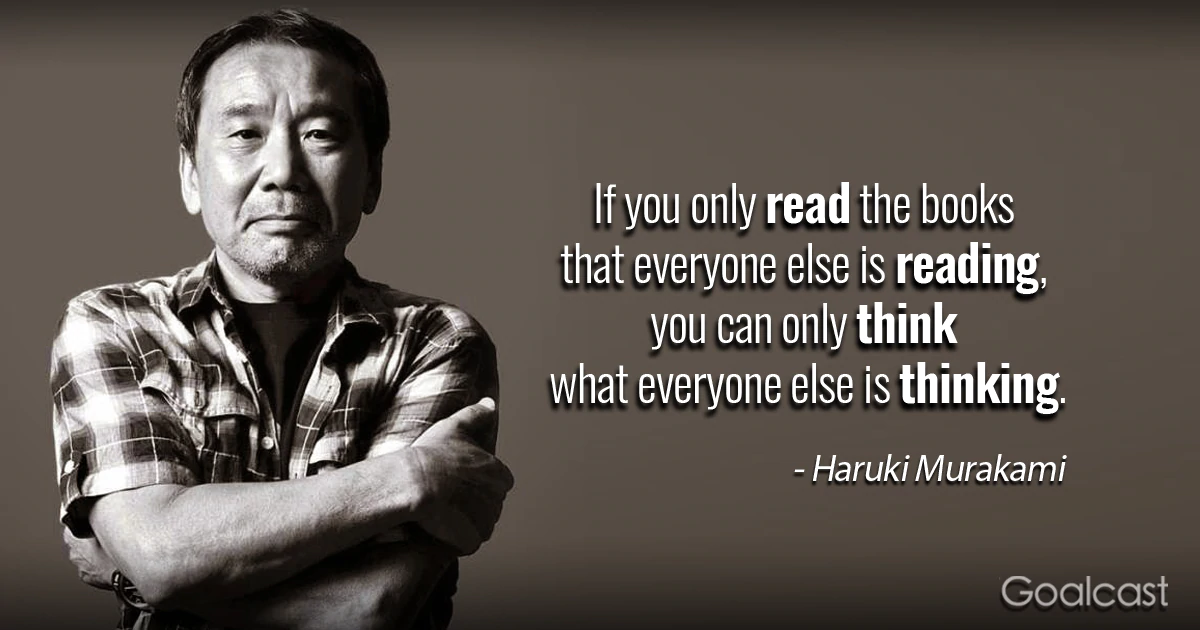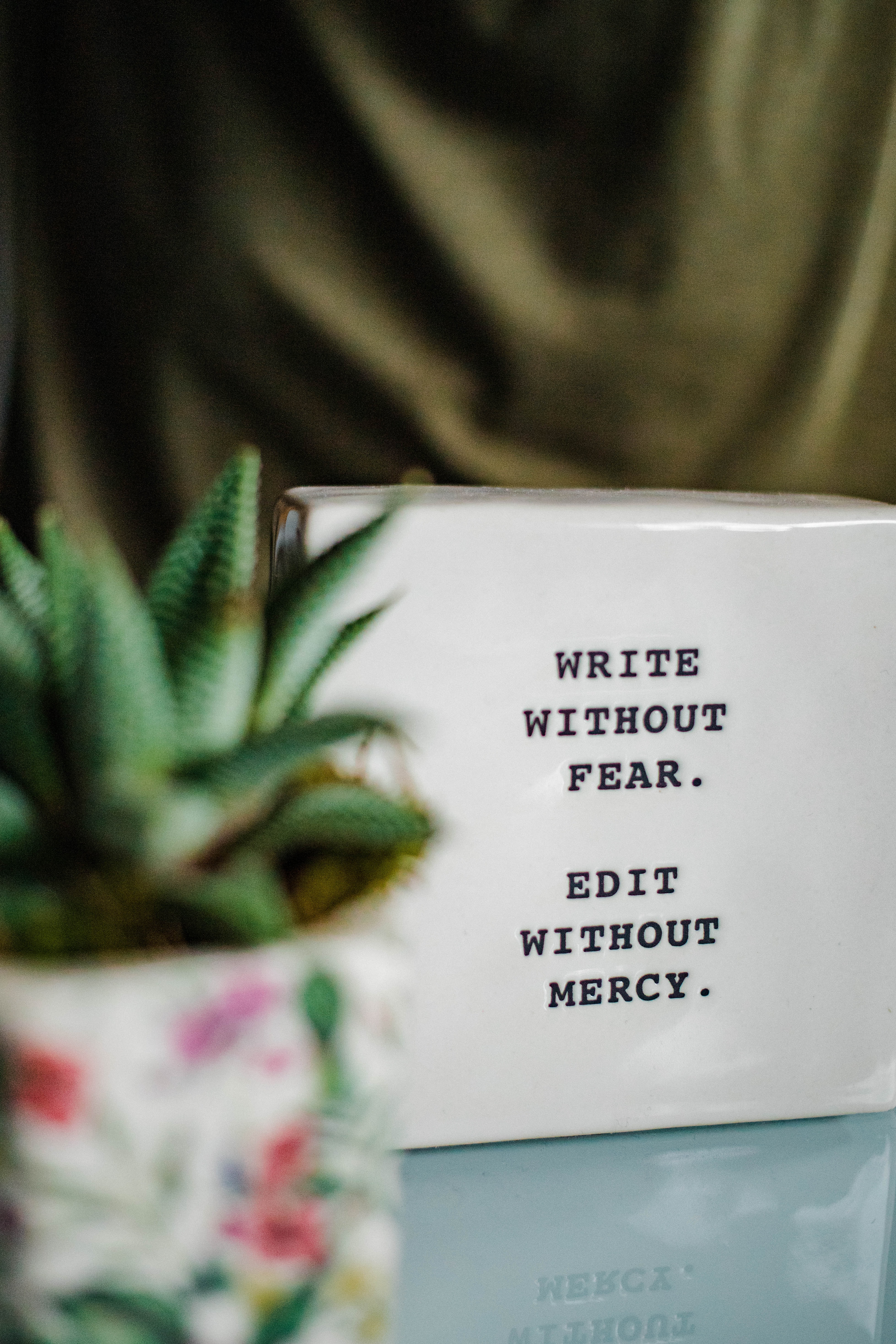How To Start A Career In Writing
7 minuteRead

When I first wanted to pursue a career in writing, my dreams were met with a lot of scepticism. Even today, when I’ve successfully serviced over 20 global clients, writing articles, ebooks, website copy, and social media content, I still feel like I’m on day 0 to becoming a successful author. But along the way, I’ve found some things that have worked for me, plenty of wisdom in books, advice from peers and words that work, that always work.
I hope my words work for you.
7 Simple steps to sit down and get typing:
1. Read Everything...At First

Step one to becoming a good writer is to read. Often. Always read and don’t just read about the stuff you like, read about the stuff you hate too. Always ask people for recommendations, a friend, the bookstore owner, a librarian, and everything that’s recommended to you. Read about stuff that doesn't interest you like philosophy, football or clinical psychology. Read everything you can find. Read the backside of your shampoo bottle, read the worst pages of the newspaper, read different local magazines, read Wikipedia articles and YouTube comments. Read the transcript of your favourite speech, or the script of your favourite movie. Read books from back when you were in school. Read until you learn to recognise what good writing means to you. Then you can start selective reading.
2. Become a Grammar Nazi

A relatively boring step, but important nonetheless is to know your basics. This means minding your Ps and Qs. People have polar views on this. The rules of grammar are hard and people often preach that they know everything about it or are overwhelmed by how complex grammar seems. But honestly, neither are true.
If you’re a grammar expert, then do you know the difference between an em dash, an dash, and a hyphen. How about the difference between single and double quotation marks, or the difference between American, British, and Australian English? Do you know what a dangling modifier is and when to avoid it? Do you know when to spell numbers in writing? These are all worth considering, and they’re just the tip of the iceberg.
Mastering the English Language is an important step to become a good writer because not knowing how it works will give you a hard time constructing sentences that will leave your readers wanting more. In the age of information, there are plenty of ways to master the English Language. You can always just write and worry about revising later. Whether you pick to worry about your basics or write with your current experience. It’s time to see what you’re truly made of.
3. Write Everyday

Hard to swallow pill: Writing, like anything else in life, needs practice. And a butt load of patience. But mostly practice.
If you limit yourself to writing, say, once a week, you’re not going to see much improvement. In the words of Anne Lamott (and you will find me shamelessly quoting her throughout this article),
“Writing is like playing piano or learning tennis; if you do it every day, you’re going to get better and better. It’s not about writing when you feel like writing. I can honestly tell you that I never feel like writing. I feel like taking the dog for a walk; I feel like catching up on the new New Yorker. When I was teaching, all my students explained to me that they’d start writing ‘as soon as’ — they were going to get serious when their last child left home or they were about to retire. And I’d say, ‘You’re either going to write tonight at 10:00, or you’re never going to write.”
If you write every day, you’ll start to realise the process becomes easier. Your thoughts become clearer. And above all, you’ll begin to enjoy it, like truly enjoy it.
What worked for me? Setting a word count and committing to the number of words every single day. I started with 500. Currently I’m at 1000 a day.
And if you’re someone like me whose entire business is built around a blog and the internet? Well the more I write, the more successful I become.
Feel stuck? You can use these handy writing tools to get you on the right track.
4) Read about Writing

Every writer I have ever interacted with is always full of suggestions about books to read before starting out. Reading is key to becoming a good writer. Out of all the books recommended to me, Everybody Writes by Ann Handley is one of my favourites. It recognizes the idea that all of us are always writing, promoting and marketing - even if we don’t realize it. It helps focus on writing enticing and interesting content that is likely to do great online.
Other books to read (that literally changed my life):
- Bird by Bird: Some Instructions on Writing and Life by Anne Lamott
- Sense of Style by Steven Pinker
- On Writing: A Memoir of the Craft by Stephen King
5) Take an Online Writing Course

If you’re serious about pursuing a career in writing, you’re going to want to explore all options. Reading helps, writing helps. But if you really want to gain expertise or fast-forward the process of “knowing better”, consider taking an online writing course. Go all in, hone your craft.
There are a thousand courses online for aspiring everything-ers. (Yes, I did just totally make up a word). Naturally, as an aspiring writer, you’re going to want to pick one that suits your goals. Do you want to be a blogger? Do you want to write to publish your content within popular communities such as girls.buzz? Do you want to be an author? Do you want to write poems? Do you want to get a job in a massive publishing house?
In all these cases, you have plenty of options.
Check out courses on Coursera, Lancify, Udemy and Skillshare.
Personally, I love the course by copyhour. It focuses on how to become a better copywriter or be more persuasive with your words. They take a relatively unconventional approach, but it works. That’s how I improved my own skills.
6. Find the Plot

Once you get used to the drill, you are now officially ready to begin contemplating a plot. Or at least, the process that leads to building a solid plot. What are the elements that go into building a great narrative? As fun as it has been with all your practice sessions of free-write, it’s important to buck up and get some direction after a point. If you’re looking to be the author of the next best-seller, you're going to need a plot. How are you going to wiggle out the tiny intricacies that something as large-scale as a book demands?
My advice: Baby steps. Writing a book is scary but writing a para isn’t. So start there. Think of it like this, a book is basically just a whole bunch of paragraphs. Although, writing a good book requires a great deal of planning.
I found this amazing piece of advice on the internet a while ago that helped me build a plot:
First, you'll need a character who wants something he or she can't yet have. Next, map out how the story progresses point by point, and focus on writing one section at a time. What's also great is that you can set goals for your writing based on the sections and their respective approximate word counts. For example, let's say you want to have the setup for the novel finished in one month. Calculate how many words a day you need to write to achieve that, and then try to stick to your schedule. Crank it up to get your novel done faster!
Remember that writing can be really obsessive. There will be times when you revisit the same three sentences you’ve written down since the past hour only because they don’t “sound right”. When this happens, follow the first draft rule. Quoting Anne Lamott’s Bird by Bird again,
“A terrible first draft is the secret of life. Your first draft of a novel might be 450 pages, but it can’t be — it really wants to be 310 pages. You’ll have to take out stuff that you’ve spent so much time on, that you love more than life itself. As one great writer said, ‘You must kill your little darlings.’ It means you have to take out your favourite lines and your favourite descriptions that you think make you look much more educated than you really are. It hurts to take that stuff out but you do.”
7. Get Inspired

Being a writer isn’t about starting out. Although, it is a big step. Being a writer is about continuously writing. Putting down words on paper every day, whether you feel it or not. Write on the days you find it hardest. Write when you just wrecked your car. Write when your girlfriend dumps you.
When your writing is inspired by life, and you are able to take what life dishes and put that down, the words will stitch together the most authentic version of you, reflected in your writing. It gives you the opportunity to look back at a bad time and reconsider what it means and build a new perspective.
There’s no way I was going to end this article without a final quote by Anne Lamott, that I hope you find as inspiring as I did:
“It’s such a gift for someone to tell you the truth, and it’s such a gift for someone to create art with the mess and the chaos and the despair of life, to have turned it into a song, a poem, a novel. It’s the hugest gift we have to offer one another.”
Write, Record and Answer! Consume Unlimited Content! All you need to do is sign in and its absolutely free!
Continue with one click!!By signing up, you agree to our Terms and Conditions and Privacy Policy.











